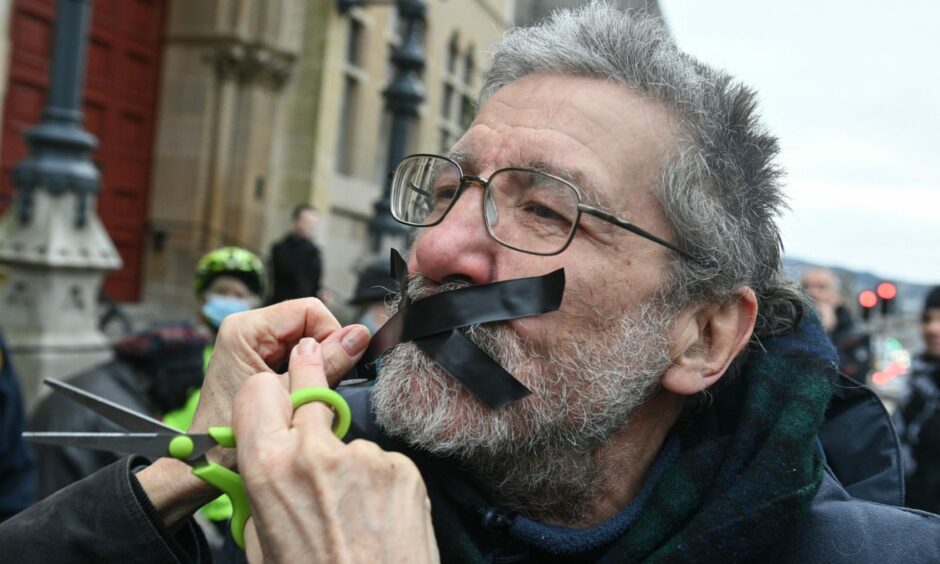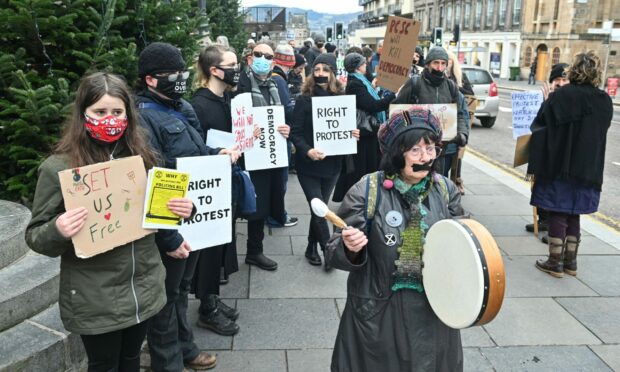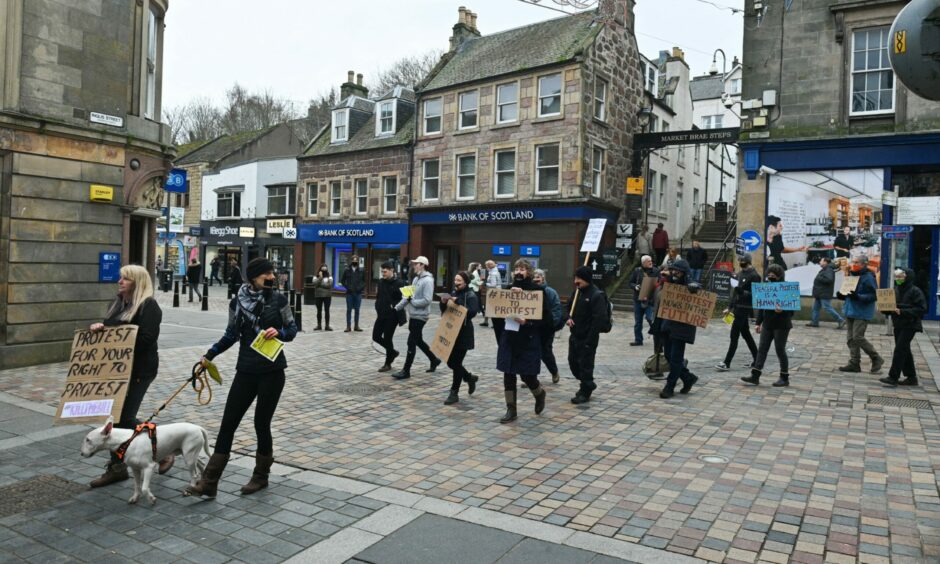Protesters took to the streets of Inverness on Saturday to protest against the controversial new policing bill which would limit peaceful protest in the UK.
The silent protest entitled “Funeral for Democracy” was staged by the activist group, Extinction Rebellion (XR), with other organisations including Quakers and Greenpeace.
It is a response to the new Police, Crime, Sentencing and Courts Bill (PCSC Bill) which would bring in new measures that would give police more power to respond to protests.
XR claim that the controversial bill is a “serious attempt by the government to outlaw peaceful protest.”
Currently, protests are allowed to be staged as part of the democratic process and some groups like XR and Insulate Britain have caused disruption.
The new bill will not directly impact Scotland as much of it will only apply to England and Wales.
However, Scots protesting in London would be subject to stricter measures.
The new bill would bring in new measures for police to carry out stop and search and increased surveillance.
It would also allow police to ban any protest deemed “disruptive” and arrest anyone on sight.
A similar protest was staged in March 2021 outside the office of Scottish Conservatives leader Douglas Ross urging him to vote against the bill when it was voted on in the House of Commons.
The UK Government says the controversial bill will allow them to take a more “proactive” approach when responding to disruptive protests, which could involve just a single person. Restrictions could involve start and finish times or noise limits.
Protest is in response to the controversial new policing bill
About 40 protesters gathered outside Inverness Town Hall before making their way down to Falcon Square.
Armed with black tape over their mouths, they sent a strong message of defiance in response to what they say is a “genuine attack on the democratic right to dissent and campaign.”
A speech was then made by XR member John Lardner, who said: “The Police, Crime, Sentencing and Courts Bill will seriously diminish the ability of the people to demand justice.
“The right to non-violent protest has shaped the society we live in and is the cornerstone of our democracy.
“Make no mistake, this bill violates your right to protest, it seriously inhibits of not removing altogether, your right to resist by taking to the streets, and using non-violent protest to hold the government to account.”
The protest in the Highlands was part of a nationwide day of protest across the UK.
The controversial bill has met strong opposition and over 600,000 people have signed a petition for the bill to be scrapped.
Fears bill will increase police powers to ban ‘disruptive’ protests
One protester also highlighted the apparent swiftness of this bill making its way through the legislative process while the Climate and Ecology Bill has stalled.

Claire Furey, a recent member of XR in Inverness, said: “This is the first protest I have ever been to and this bill takes away so many of our human rights that I had to do something about it.
“The point of protest is to highlight the fact that you are unhappy with something and you don’t agree with what’s being done so I felt it was really important to come out and highlight that this bill should not become law.”
Another protester also highlighted the message it may send to other countries if a country like the UK is perceived to be restricting peaceful protesting then it could set precedence.
Rachel Hunter, another protester from XR, said: “We need these rights because it is through protesting that I have the right to vote and equal rights at work.
“It’s through protests that our society is a free and fair democratic society and if that is undermined then that is a dangerous road to go down.”

